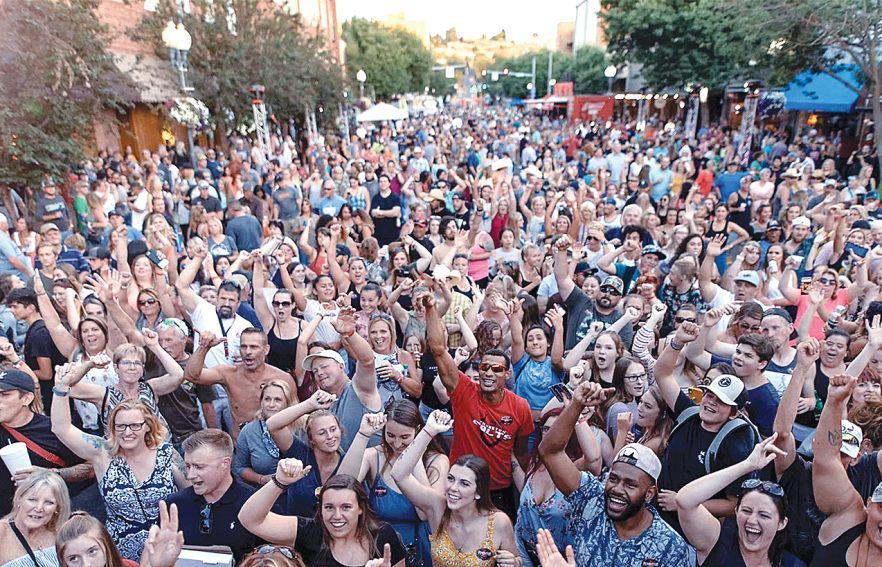From here to anywhere: The stories we tell, and listen to, inform our culture
Published 6:00 am Saturday, January 16, 2021

- Bette Husted
Barry Lopez once asked tribal elders in the far north Indigenous cultures who had taught him so much, “What do you mean by a storyteller?”
“When the stories you tell help,” they told him.
I thought of these words last week when Americans invaded their own Capitol, some texting about Q-Anon’s promised “Storm,” others brandishing Confederate flags and wearing T-shirts that read “Camp Auschwitz” and “6MWE” (six million wasn’t enough) and “Women belong in the kitchen.”
Clearly, the stories we choose to tell, and the ones we choose to listen to, matter.
This week, I’ve been reading “The Beadworkers,” by Nez Perce writer Beth Piatote. I am not Indigenous. My ancestors were European; I’m as white as most of the faces in that terrifying crowd. But it’s hard to describe my relief and joy when I opened the book to find that its first word is Kuus, Nez Perce for water. The word that opens and closes each ceremonial feast here on the Umatilla Reservation, and begins and ends each day there, too, for many.
“Water is life,” Piatote writes. “Water is alive. All life begins and ends with water: our mothers, the rivers, the rain. From the beginning of time to the end of time, the word we carry on our breath, the taste of this world on our tongues and our tears, is alive, is life, is Kuus.”
Now that’s a story worth listening to.
It was fun to find familiar names in her stories: Cay-Uma-Wa, Phillip Cash Cash, Pendleton Round-Up, Celilo, St. Anthony Hospital. And names I knew, like Theresa Eagle, the auntie who gave Piatote her first words. But what really helped me were the stories, especially the enduring, ancient ones guiding the newer stories.
The book begins with Feast stories, rich in Nez Perce language, and goes on to include stories set during Wounded Knee and the more recent Fish Wars. I loved the one about creating, as an installation art exhibit, a satirical game called wIndin! played with Pendleton Blanket and Stick Game cards.
And it was almost as if I was in the room as a woman teaches her niece to make beaded earrings for her mother, feeling some of the same peace I’ve observed as I watch people bead. “When I wrote these stories,” Piatote told Sam Levin at the LA Review of Books, “my audience were people I imagined with me at the beadwork table, telling stories and laughing. … You come with all of your pain and all of your suffering, you’re bearing it, but it’s not happening in that space.”
The final section of the book is a play inspired, she says, by the 1996 discovery of Kennewick Man, the Ancient One. “I wondered why it was that people could understand things like Greek tragedy and Antigone but couldn’t understand why Native people, or anybody, cared about their ancestors. Doesn’t this literature form the universal values that we’re all supposed to know and understand?”
In her version, Antikoni “steals” bones from a museum supervised by her uncle Kreon; aunties are the chorus. “Everyone’s on the same side. Everyone loves each other. They’re not trying to destroy each other, but they do … they all say, ‘I love my people. I’m doing this for my people. I’m sacrificing myself for my people.’ But their vision of sacrifice is different.”
Beth Piatote’s stories helped push back the walls I felt closing around me as I read the news. She says she thinks of her own writing as being like beadwork, putting down one word at a time. “When I’m at the beadwork table, I always find myself wondering how it is that Indian people have survived. And I think surviving is about people continuing to remake their culture.”
Can Americans make a culture free of the idea of white supremacy, a democracy truly based on inclusion and equality? Can we reckon with our past and our present? Langston Hughes said it best: “Let America be America again — the land that never has been yet — and yet must be.”
It will take stories that help.
The next First Draft Zoom is on Jan. 21 — the day after the inauguration — at 7 p.m.









